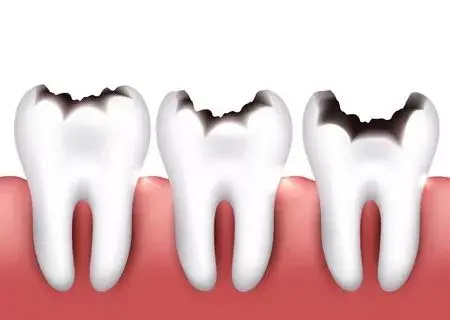One common oral health issue that affects people of all ages is dental cavities. Cavities, also known as dental caries or tooth decay, can cause pain, and discomfort, and even lead to more serious dental problems if left untreated. In this article, we will explore what dental cavities are, what causes them, how to prevent them, and the importance of regular dental care.
What are Dental Cavities?
Dental cavities are small holes or openings in the teeth caused by a combination of factors, primarily bacteria, sugary foods, and poor oral hygiene. The process begins when plaque, a sticky film of bacteria, builds up on the tooth surface. The bacteria in plaque produce acids that erode the protective enamel, leading to the formation of cavities or holes over time.
Causes of Dental Cavities.
The formation of cavities starts with plaque. This plaque is a sticky biofilm of bacteria that is found on the teeth’ surfaces. The bacteria in the plaque feed on the sugars in the foods you eat and liquids you drink and release acid thereafter. Due to the sticky nature of plaque, it keeps these acids in contact with your teeth. These acids are strong enough to damage the tooth’s outer layer(enamel) through the loss of calcium and phosphate. This process is called demineralization and forms tiny holes on the tooth’s surface. These tiny holes on the tooth surfaces are the first stage of cavities.
If left untreated, the acid and the bacteria will continue to attack the enamel until it reaches the inner layer of the tooth called dentin and penetrate the inner tooth material, known as the pulp.
The factors that contribute to the formation of dental cavities.
Several factors contribute to the development of dental cavities. These include:
a. Poor Oral Hygiene: Inadequate brushing and flossing allow plaque to accumulate on teeth, increasing the risk of cavities.
b. High Sugar Consumption: Frequent intake of sugary foods and beverages provides nourishment for bacteria, leading to acid production and tooth decay.
c. Acidic Foods and Drinks: Acidic foods and drinks can erode the enamel, making teeth more susceptible to cavities.
d. Dry Mouth: Saliva plays a crucial role in washing away food particles and neutralizing acids in the mouth. A lack of saliva, often caused by certain medications or medical conditions, can increase the risk of cavities.
e. Weakened Enamel: Conditions such as enamel hypoplasia (underdeveloped enamel) or erosion from acid reflux can make the teeth more prone to cavities.
Treatment Options for Dental Cavities
If you develop a cavity, prompt treatment is necessary to prevent further damage. The treatment options depend on the severity of the decay and may include:
a. Fillings: This is the most common treatment for cavities. The decayed portion of the tooth is removed, and the cavity is filled with dental filling material like composite resin or amalgam.
b. Crowns: In cases of extensive decay, a dental crown may be needed to restore the tooth’s structure and function.
c. Root Canal Treatment: When the decay reaches the tooth’s pulp, a root canal procedure may be required to remove the infected tissue and save the tooth.
d. Extraction: In severe cases where the tooth is beyond repair, extraction may be necessary. Replacement options such as dental implants or bridges can restore the missing tooth.
Prevention Tips For Dental Cavities
Preventing dental cavities is easier and more cost-effective than treating them. Here are some essential preventive measures to incorporate into your oral care routine:
a. Brush and Floss Regularly: Brush your teeth at least twice a day using fluoride toothpaste and floss daily with dental floss or water flosser to remove plaque and food particles.
b. Limit Sugary Foods and Drinks: Reduce your consumption of sugary snacks, soft drinks, and candies. Opt for healthier alternatives like fruits and vegetables.
c. Drink Plenty of Water: Water helps flush out food debris and stimulates saliva production, promoting oral health.
d. Dental Sealants: Dental sealants are protective coatings applied to the chewing surfaces of teeth to prevent bacteria and plaque buildup.
e. Regular Dental Check-ups: Visit your dentist at least twice a year for professional cleanings, examinations, and early detection of any dental issues.
Conclusion
Dental cavities are a common dental issue that can be prevented with good oral hygiene practices and regular dental care. By understanding the causes of cavities and implementing preventive measures, you can maintain a healthy smile and avoid unnecessary pain and expenses associated with dental decay. Remember, regular check-ups with your dentist play a crucial role in detecting and treating cavities early, ensuring optimal oral health for a lifetime. Take care of your teeth, and they will take care of you.

